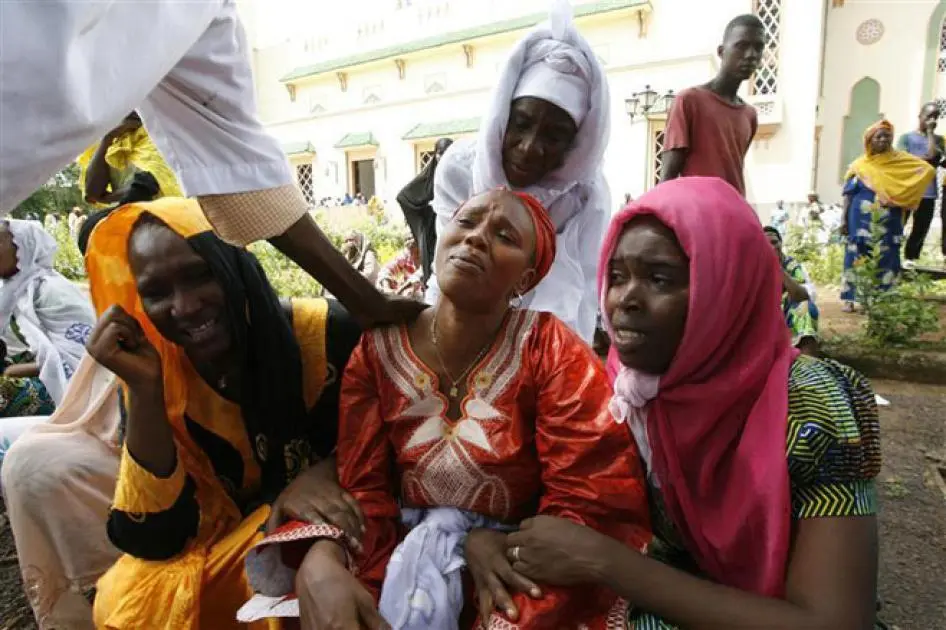
Thirteen years after the deadly Zowota massacre, families of the victims remain without justice, as the Guinean state continues to stay silent despite international rulings demanding accountability.
The quiet forest village of Zowota became the scene of a brutal crackdown. Units from the army, gendarmerie, and police arrived in official vehicles, unleashing an operation of rare violence without warning, explanation, or legal justification.
Six people were killed, including local district president Nyankoye Kolie, who died instantly after being struck in the throat by a grenade. Siba Kpeleyai, Foromo Tokpa, Nazouo Kolie, and Moriba Tokpa Kolie were shot dead, while Pokpa Zaoro Loua succumbed to injuries later in hospital.
More than ten villagers were left seriously wounded, many of whom still bear lifelong scars. Several homes were burned, families torn apart, and livelihoods destroyed.
In the immediate aftermath, security personnel employed by the Vale company—sons of the village—were arrested, beaten, and accused of inciting protests. They were handed over to authorities on the orders of a senior gendarmerie officer, deepening the trauma inflicted on the community.
Despite the magnitude of the violence, no prosecutions have taken place. There has been no trial, no official acknowledgment, and no reparations.
Efforts to seek justice have been relentless. On August 23, 2012, lawyers and NGOs, including Same Rights for All (MDT) led by Foromo Frederic Loua, filed formal complaints.
Their work culminated in a November 10, 2020, ruling by the ECOWAS Court of Justice, which condemned Guinea for grave human rights violations. To date, that judgment remains unenforced.
“This organized forgetting must end,” declared one of the lawyers representing victims. “The dead are denied dignity, and the living are denied their right to truth, justice, and reparation.”
Calls are now intensifying for the state to execute the ECOWAS ruling, launch an independent inquiry, prosecute those responsible, compensate victims, and officially recognize the massacre as a state crime.
For the people of Zowota, the massacre is neither a distant memory nor a closed chapter. It remains, as they say, “an open wound in the body of our nation” — one for which they vow to continue demanding justice.



